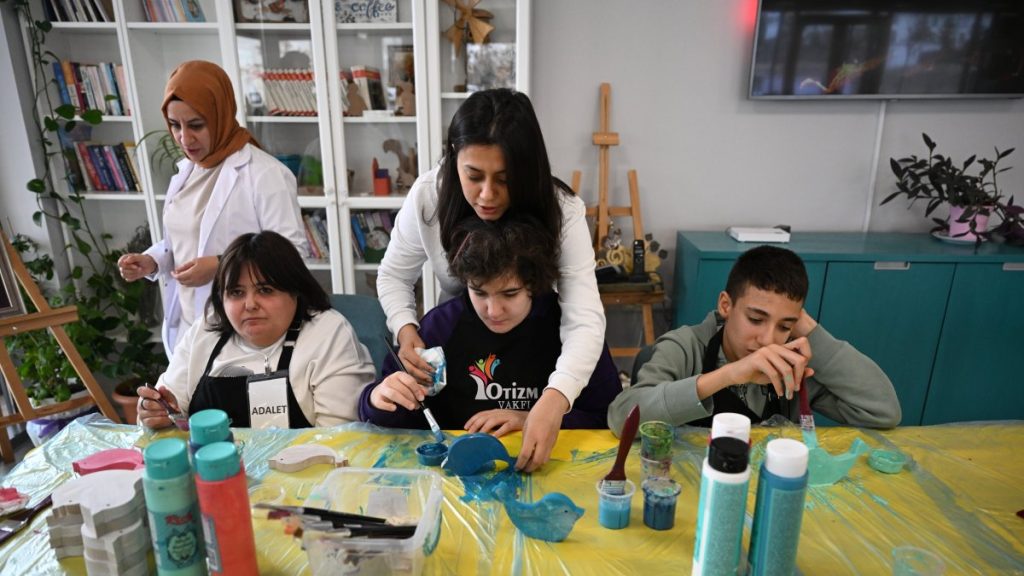Child Neurology Specialist Dr. Ece Gültekin recently highlighted a significant rise in autism rates in Türkiye in the past two and a half decades.
“According to the Ministry of Family and Social Services 2023-2030 Autism Spectrum Disorder Action Plan, in 2000, one in every 150 children in Türkiye was diagnosed with autism. By 2020, this ratio had increased to 1 in 36, reflecting a 316.67% rise in autism rates from 2000 to 2020,” she explained.
Addressing the reasons for the rise in autism rates, Gültekin pointed out that one of the main causes is the increase in early diagnosis and screening rates. She said, “Autism Spectrum Disorder (ASD) is a neurological condition where individuals show differences in communication, interaction and learning due to issues with brain signal transmission.”
She added: “The increase in the number of diagnosed individuals in recent years is directly proportional to the earlier diagnoses of more children and the widespread use of screening tests. This shows that societal awareness has increased, and autism has become more recognized.”
Gültekin also addressed autism diagnosis rates in both the United States and Türkiye, noting: “A 2020 study revealed that in the U.S., one in every 36 children at the age of 8 is diagnosed with autism. This increase is largely attributed to more thorough diagnoses and greater societal awareness.”
“While the exact causes of autism are still not fully known, the interaction of genetic and environmental factors plays an important role,” said Gültekin.
She continued: “Certain factors during pregnancy, such as environmental pollution, can play a role in the development of autism. Genetic disorders like Fragile X syndrome, tuberous sclerosis complex and Prader-Willi syndrome have been associated with autism.”
“The increase in autism diagnoses has been particularly noticeable in demographic groups with previously low screening rates. Women, children from certain ethnic or demographic backgrounds, premature births and older parents are factors that could contribute to this increase,” she added.
Gültekin emphasized that autism diagnoses are usually made through observations and discussions with parents; early screening at a young age can make a significant difference in an individual’s development. She explained that screening tests between 18-24 months can detect potential autism cases at an early stage, and parents should not neglect these tests.
She also highlighted that with early intervention, cognitive, social and communication skills in children with autism can be significantly improved, adding, “Treatments started before the age of three provide important contributions to children’s development.”
“Although there is no definitive cure for autism, early treatment methods contribute greatly to the development of individuals,” the expert stressed, noting that therapies such as speech therapy, occupational therapy, social skills training and sensory integration therapy help individuals with autism improve their daily living skills and involving families in the process is crucial.
Gültekin stated that early intervention can help children with autism lead more independent and social lives in the future and raise greater awareness in society.


